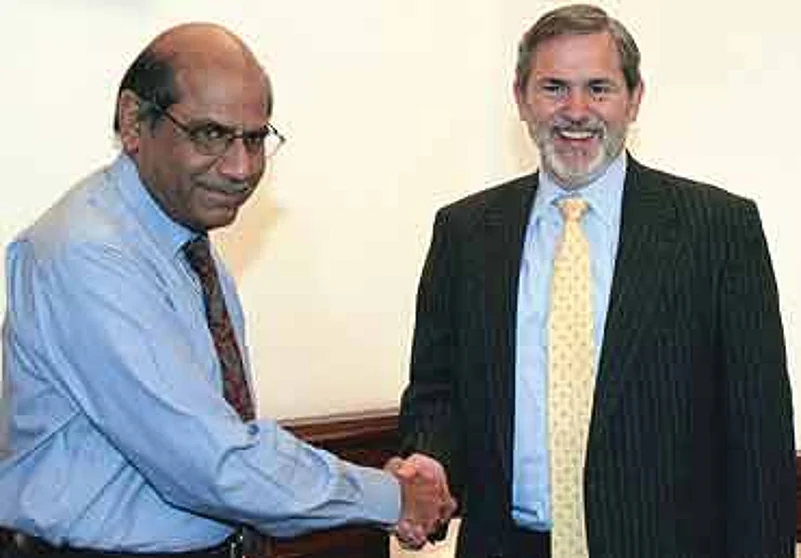
But the Indo-US deal is very much on the NSG agenda for the May meeting in Rio. At least six ambassadors from key countries said there was no move to exclude discussion. Ambassador Rolald Naess of Norway, the current chair of the NSG, told Outlook that the group hadn't drawn any conclusions from its last meeting where two senior US officials fielded a variety of questions. When pressed, he added: "Of course, the deal can be put on the agenda for May. The agenda is not yet drafted." Besides, a small group of NSG officials will travel to New Delhi early May as part of the "regular outreach activities". "We may ask some questions of the Indians," Naess said. "We are trying to clarify the content of the agreement. For the time being, we are not close to how and when to move," he added.
Shi Zhong Jun, the Chinese charge d'affaires in Vienna, said Beijing will not oppose a discussion while Swedish ambassador to the NSG, Richard Ekwall, confirmed from Stockholm that there will be a discussion on the deal in Rio. Russia, France, Australia and Britain have openly supported the pact while concerns raised by tough customers such as Japan, China, Canada and the Nordic countries are laced with a healthy realisation of the net gains of the agreement. The NSG ambassadors worry about a possible spill over of nuclear technology to India's weapons' programme, but at the same time they appreciate India's enormous need for nuclear energy. "India's good record counts in its favour," said Ekwall.
Many countries in the NSG are yet to take a clear national position on the Indo-US agreement given the radical departure it represents. Sweden, Germany, Canada, Japan and Norway have not yet endorsed it but they are mulling over issues. Their concerns pertain to the number of Indian nuclear plants that will come under IAEA safeguards, the exact nature of the safeguards and whether the Indo-US agreement will seriously increase the amount of bomb-making material in India's hands. China recently welcomed Indo-US cooperation as a source of regional stability.
"We are studying the agreement. China and India are good neighbours and relations are developing very rapidly. We support India's development but at the same time China is against proliferation," Shi said. Most of the answers to NSG's questions are contained in India's separation plan, the 2005 law criminalising export and trade in sensitive technology and India's commitment to adhere to various international rules governing trade in missiles, N-technology and sophisticated weapons.
But one thing is certain, the NSG will not move before the US Congress ratifies the deal. "We have to see the US decision. Approval by the US senate is step no. 1," Lundborg told Outlook. NSG ambassadors are closely following the twists and turns of the debate in Washington but indications are that countries have begun appreciating the broader context of the deal just as the US Congress has after secretary of state Condoleezza Rice's bravura performance. As Schulte said, "India with its growing economy is an important partner not just for the US but also for other countries."





















